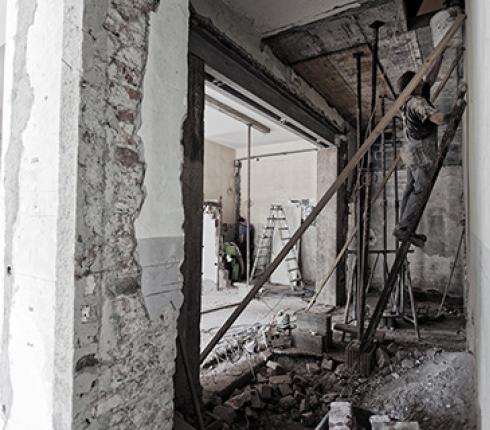Will modernization of tenancies still be profitable after the new waiting period at a change of ownership?
A five-year waiting period at a change of ownership of a tenancy is one of the key Blackstone interventions that will have an impact on landlords’ rental yield in connection with modernization. But what does a waiting period imply and what is a change of control? We will give you an overview of what the changes mean and what impact they will have on investors and landlords who want to modernise and invest in rental properties.
What does a waiting period mean?
The new waiting period means that the landlord must have owned or controlled the tenancy for five years before the landlord is allowed to let out to a new tenant according to the value of the tenancy. If the tenancy has been let out at the end of the waiting period, the landlord must patiently wait for the tenant to vacate the premises. Only then can the landlord re-let the tenancy and fix the rent according to the value of the tenancy.
During the waiting period, the landlord can modernise the tenancy. However, until the waiting period has ended, the landlord will have to let out according to the cost-determined rent with an addition for improvements.
When is there a change of control?
The Blackstone intervention provides a detailed regulation of the change of control. Generally, the rules are based on the condition that any transfer of minimum fifty per cent of the ownership, controlling interest, right to rental yield or increase in value, etc. constitutes a change of control which triggers the new five-year waiting period.
However, some situations are exempt. These are:
- change of control by succession pursuant to the Danish Inheritance Act
- intra-group transactions
In addition, in three cases, a property may be exempted from the rules on waiting periods:
- If a property of a cooperative housing association is converted into a rental property. This applies also to a subsequent resale of the property.
- If the landlord makes energy improvements amounting to at least DKK 3,000 per m² over a two-year period.
- If the property is energy-enhanced to obtain an energy labelling that is at least three levels above the level on 1 July 2020.
When will the rules come into force?
The rules on change of control and waiting period will apply from the introduction of the bill on 22 April 2020. This means that the waiting period runs from the time when the first change of control is made after 22 April 2020.
What are the implications for the landlord?
The rules on change of control and waiting period imply that property investors have to wait patiently for the waiting period to end and the tenant to vacate the premises, before they can reap the benefits of the modernization of the tenancy. It could take many years before the landlord is able to raise the rent after a radical modernization, especially as a result of the new prohibition against paying tenants to vacate premises.
This can put the landlord in a quandary if a tenancy is vacated up to the end of a waiting period. In this case, the landlord must choose between letting out the tenancy, risking that the tenant stays for a very long time, thereby precluding the landlord from fixing the rent according to the value of the tenancy, or leaving the tenancy without a tenant for a period up to the end of the waiting period.
In this context, it should be noted that it is not allowed to let out a tenancy on terms that, at the end of the waiting period, the rent is changed from cost-determined rent to the value of the tenancy. Some landlords might be tempted to enter into a fixed-term tenancy agreement, so that the tenancy will terminate at the end of the waiting period, but such a time limit would not be valid.
NJORD recommends
The rules on change of control and waiting period will affect the investment potential of many rental properties. What result the impact will have on the rental property that you are interested in or own depends on the property in question. Whether you want to buy or sell a rental property subject to the new rules, NJORD recommends that you seek legal advice in order to clarify how to achieve the best rental yield in the short and long term.
Do you need legal advice?
If you are faced with investing in a rental property or if you own a property subject to the new rules, NJORD’s real estate team can advise you on how to address the new rules and avoid the many new pitfalls that the Blackstone intervention may imply for many landlords.






